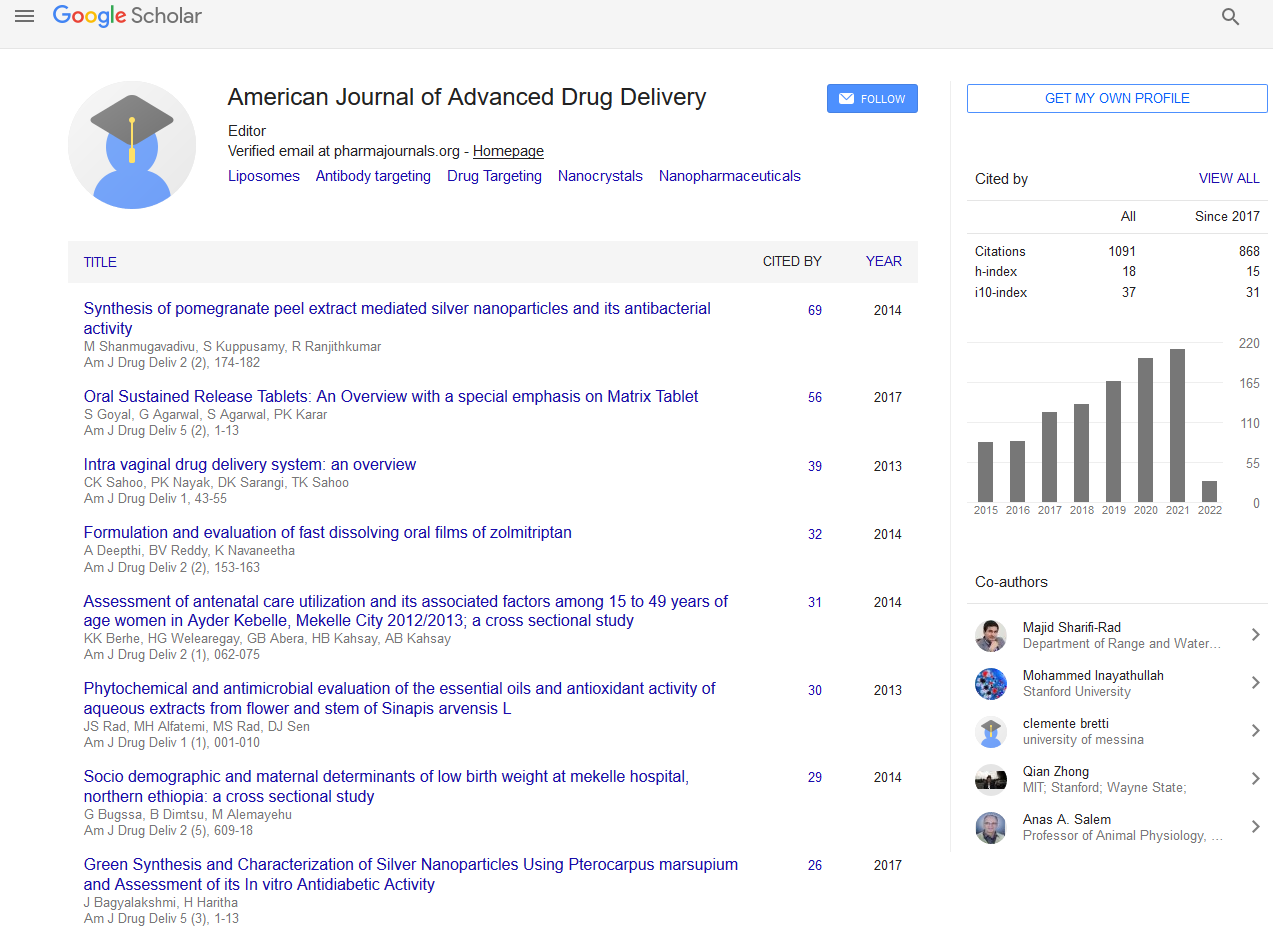Commentary Article - (2023) Volume 11, Issue 3
The Revolution of Gene-Based Delivery: Unlocking the Potential of Precision Medicine
Ham Kaede*
Department of Medical Sciences, California University, USA
*Correspondence:
Ham Kaede,
Department of Medical Sciences, California University,
USA,
Email:
Received: 30-Aug-2023, Manuscript No. IPAAD-23-18216;
Editor assigned: 01-Sep-2023, Pre QC No. IPAAD-23-18216;
Reviewed: 15-Sep-2023, QC No. IPAAD-23-18216;
Revised: 20-Sep-2023, Manuscript No. IPAAD-23-18216;
Published:
27-Sep-2023, DOI: 110.36648/2321-547X.11.3.26
Description
In the world of modern medicine, breakthroughs often come
from the intersection of biology, technology, and innovation.
One such area of tremendous promise is gene-based delivery, a
field that holds the key to unlocking the full potential of precision
medicine. Gene-based delivery is a powerful technique that enables
the targeted and specific introduction of genetic material
into cells, offering new hope for treating a wide array of diseases.
Gene-based delivery, also known as gene therapy, is a revolutionary
approach that involves the introduction, alteration, or regulation
of genes within an organism’s cells. This technology has the
potential to treat inherited genetic disorders, various types of
cancer, and other diseases that have a genetic component. The
process begins with identifying the specific gene responsible for
a disease or condition. Once identified, scientists can use a vector,
typically a viral or non-viral carrier, to introduce the desired
genetic material into the patient’s cells. This material can either
replace a malfunctioning gene, correct mutations, or introduce
new genes to achieve the desired therapeutic effect. One of the
most significant advantages of gene-based delivery is its ability
to provide precision medicine tailored to an individual’s genetic
makeup. By customizing treatment based on the patient’s genetic
profile, the therapy can be more effective and less prone to
side effects. This approach can be particularly potent in cancer
treatment. Traditional chemotherapy, while effective, often results
in collateral damage to healthy cells. Gene-based delivery,
on the other hand, allows for targeted treatment, attacking cancerous
cells while sparing healthy ones. This precision significantly
reduces the side effects associated with chemotherapy. Cystic
fibrosis, a life-limiting genetic disorder, is another condition benefiting
from gene-based delivery. With this approach, scientists
can introduce a functional copy of the CFTR gene into a patient’s
cells, potentially alleviating the symptoms and improving the patient’s
quality of life. While the potential of gene-based delivery
is immense, it is not without its challenges and ethical considerations.
The safety and long-term effects of these therapies are
still being studied extensively. Concerns surrounding the potential
for unintended consequences and off-target effects must be
addressed to ensure the safety and efficacy of these treatments.
There are also ethical concerns about the potential for genetic
manipulation beyond medical necessity, which could lead to
“designer babies” or other unintended consequences. In recent
decades, primary health care has emerged as a cornerstone of
public health systems worldwide, serving as the foundation for
equitable healthcare access and improved health outcomes. The
effectiveness of primary healthcare, however, hinges upon its
ability to address the unique challenges faced by communities at
the grassroots level. Striking the right balance between scientific
innovation and ethical responsibility is a critical aspect of advancing
this field. Given the revolutionary nature of gene-based delivery,
regulatory agencies worldwide have established stringent
guidelines to ensure patient safety. For example, in the United
States, the Food and Drug Administration (FDA) closely monitors
and regulates gene therapy trials, ensuring rigorous testing and
monitoring before treatments become widely available. These
regulatory frameworks aim to strike a balance between promoting
innovation and protecting patients. The future of gene-based
delivery is incredibly promising.
Conclusion
As our understanding of genetics and the technology used in
gene therapy continues to advance, we can expect significant
improvements in safety, efficacy, and accessibility. Research into
gene editing techniques, such as CRISPR-Cas9, offers the potential
to treat diseases at the genetic level, effectively eliminating
certain conditions before they even manifest. Moreover, ongoing
studies may lead to more non-viral delivery methods, reducing
the risks associated with traditional viral vectors.
Acknowledgement
None.
Conflict Of Interest
The author’s declared that they have no conflict of interest.
Citation: Kaede H (2023) The Revolution of Gene-Based Delivery: Unlocking the Potential of Precision Medicine. Am J Adv Drug
Deliv. 11:26.
Copyright: © 2023 Kaede H. This is an open-access article distributed under the terms of the Creative Commons Attribution Li�cense, which permits unrestricted use, distribution, and reproduction in any medium, provided the original author and source
are credited

